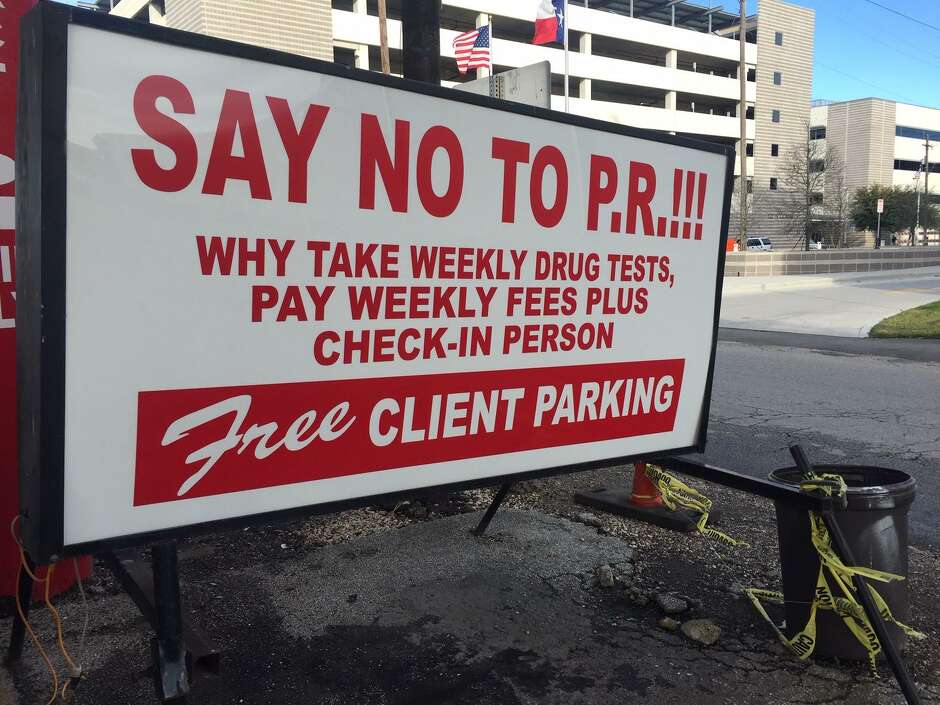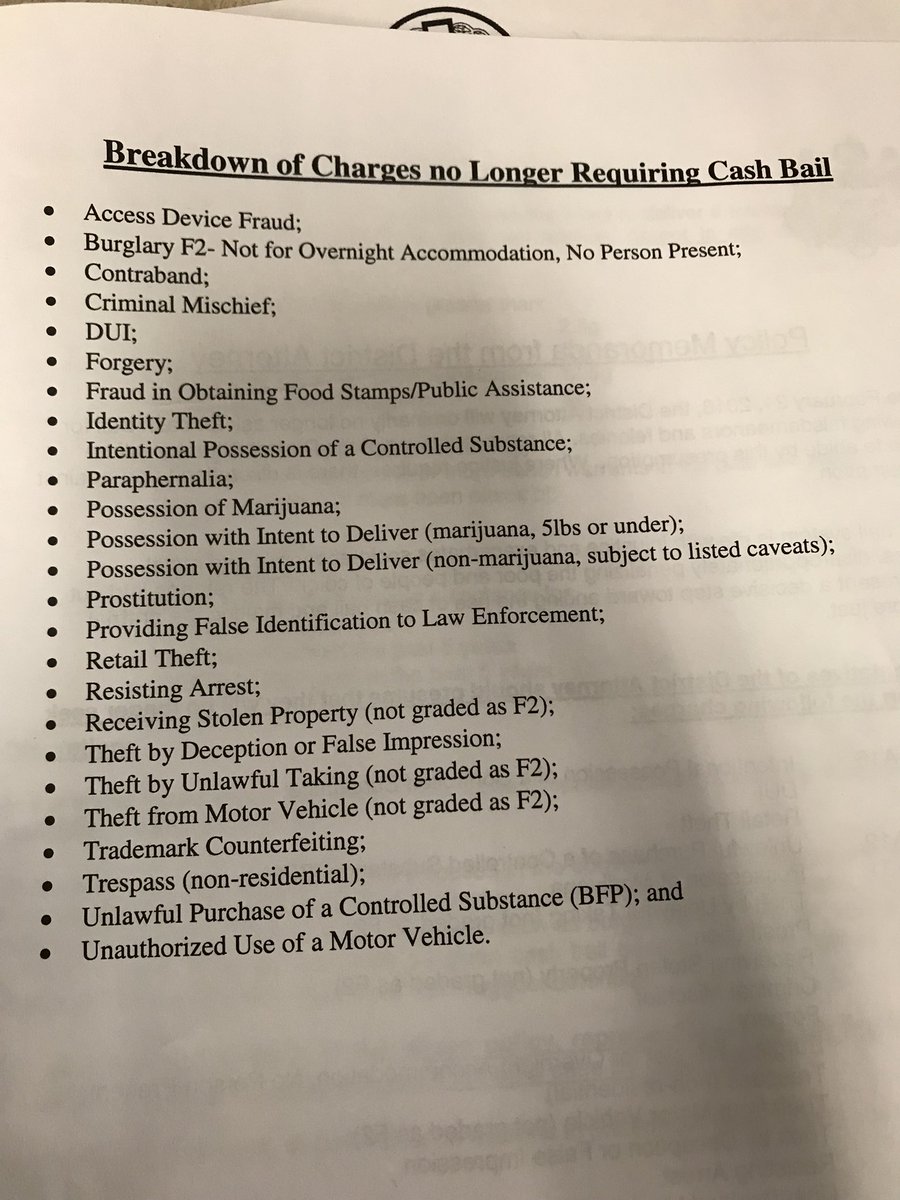Four officers were shot and two suspects and their dog are dead after a botched narcotics raid in Houston. Friends and family of the deceased say they were innocent victims. Obviously, I hope all the officers recover. But having watched this
play out in the press for several days, Grits has questions.
Here's the background: According to the
search warrant, police claimed they sent a confidential informant into the home who had assisted in 10 or more prior investigations, all of which had led to arrests and seizures. They searched the CI, gave him cash, and allegedly watched him go into the home in question. He came out with brown heroin in a bag, telling police he'd seen many other bags of heroin and a 9mm pistol. The officers placed the home under surveillance until they could get a warrant.
Problem is, they found no bags of heroin. There was no 9mm pistol. But when the narcotics unit (not a SWAT team) entered the home at five in the afternoon, announcing themselves as the battering ram broke the door down, there was an angry pit bull facing them that an officer immediately killed with a shotgun blast. At that, one of the homeowners returned fire, and an intense gunfight occurred.
The homeowners didn't have a 9mm, but they did have shotguns and a .357 Magnum, and they responded to the home invasion the way many gun owning Texas homeowners brag they would. Maybe they were violent criminals trying to kill police, but they could also have been unwitting victims of a lying informant who didn't understand who had broken down their door and shot their dog.
That's the first question: Were these people heroin dealers? The available evidence says no, and regrettably, they're not around to defend themselves against the allegation. Their neighbors told reporters they almost never had visitors, and their friends and family adamantly deny the charge. Cocaine was allegedly found on the scene, but one bag, at user levels. And the multiple bags of brown heroin and 9mm weapon alleged in the search-warrant affidavit were nowhere to be found.
So the second question is: Where did the informant get the heroin? Police claimed they followed best practices, searching the informant beforehand and watching him go in and out. The couple couldn't have moved it because police had the house under surveillance. And they'd have seen if there'd been enough customers for all the volume to deplete. So if the informant brought back heroin, where did it come from?
Third question: Is it plausible that this couple would sell smack to a CI sent to their front door whom they'd never met before? Something there doesn't add up.
Fourth question: Will the Conviction Integrity Unit at the Harris County District Attorney's Office now review those 10+ cases using this informant in the past? If he lied about this couple selling heroin, what else might he have lied about?
Fifth question: HPD claimed they raided the home for safety reasons because they knew there was a gun inside (even though they had bad information about that; there was no 9mm). But given the outcome, was it really safer? It was 5 p.m., so they were awake. Mightn't the outcome have been better if they'd just knocked on the front door?
Sixth question: Should police use "dynamic entry" to execute search warrants every time there's reportedly a gun in the home? There are probably guns in half the homes in Texas! Relatedly, if you're afraid someone might shoot at you when you break down their door, why not just wait outside for them to come out? The house was already under surveillance.
Seventh question: Were these narcotics officers sufficiently trained to perform a dynamic entry? There's a subsidiary question: why wasn't a SWAT team used? After his wife and dog had been killed, the husband, a Navy veteran with no criminal record, snuck out the back and opened fire on the officers from behind,
the Houston Chronicle reported. This was a basic tactical error - someone should have been manning the back door. Also, such raids are frequently conducted pre-dawn to minimize the chance suspects will be awake and shoot back. This one was performed at five in the afternoon. So did these narcotics cops just not know what the hell they were doing?
Eighth question: Could they have raided the wrong house? The search warrant affidavit says police watched the informant go into the house and come out with drugs, then watched it until they raided it. But what if that's a lie? What if the informant merely told an officer the address of the house, and got it wrong? Otherwise, where is the heroin?
Ninth question: How much was the informant paid for this service? What is this person's background? How much was s/he paid in the past, and for what services? An officer vouched for the person in the search warrant affidavit, what was their relationship? It's okay to tell, the person can never be used as an informant again.
Tenth question: Chief Art Acevedo said neighbors thanked police for taking out a known drug house. But reporters interviewed every neighbor they could find and everyone said these were quiet people who seldom had visitors, loved animals, and kept to themselves. Why weren't those grateful neighbors corroborating the chief's claims to reporters?
Eleventh question: Why does Fox and Friends give union boss Joe Gamaldi a platform?
The guy's a blowhard.
For more commentary on some of the implausible aspects to this story, see Reason's Jacob Sullum
here and
here.
MORE: On Twitter,
someone suggested another excellent question: "Who shot who?" It was said the wife was shot when she lunged for a downed officer's shotgun after her dog had been killed. Does that mean she was unarmed at the time and the husband did all the shooting? Were any of the police injured by friendly fire? Who shot who is an excellent question.
UPDATE (2/15): We're starting to get a few more answers. The informant may not exist, reported the Houston Chronicle, and police officers used heroin already in their possession to claim they'd performed a controlled buy. The narcotics officer who signed the warrant, Gerald Goines, from his hospital bed named two informants who may have performed the controlled buy, but
both denied participating when questioned by investigators.
In the original warrant - the one used to justify the raid - Goines wrote that he watched the buy and, along with [Steven] Bryant, identified the substance as heroin. But when investigators went back to talk to Bryant, he admitted that he'd actually retrieved two bags of heroin from the center console of Goines' car, at the instruction of another officer.
Though he then took the two bags of drugs for testing to determine that they were heroin, he eventually admitted that he had never seen narcotics in question before retrieving them from the car. That, the investigator noted, contradicts the search warrant affidavit filed before the raid, which indicates that Bryant "recognized the substance purchased by the CI as heroin."
.jpg)



